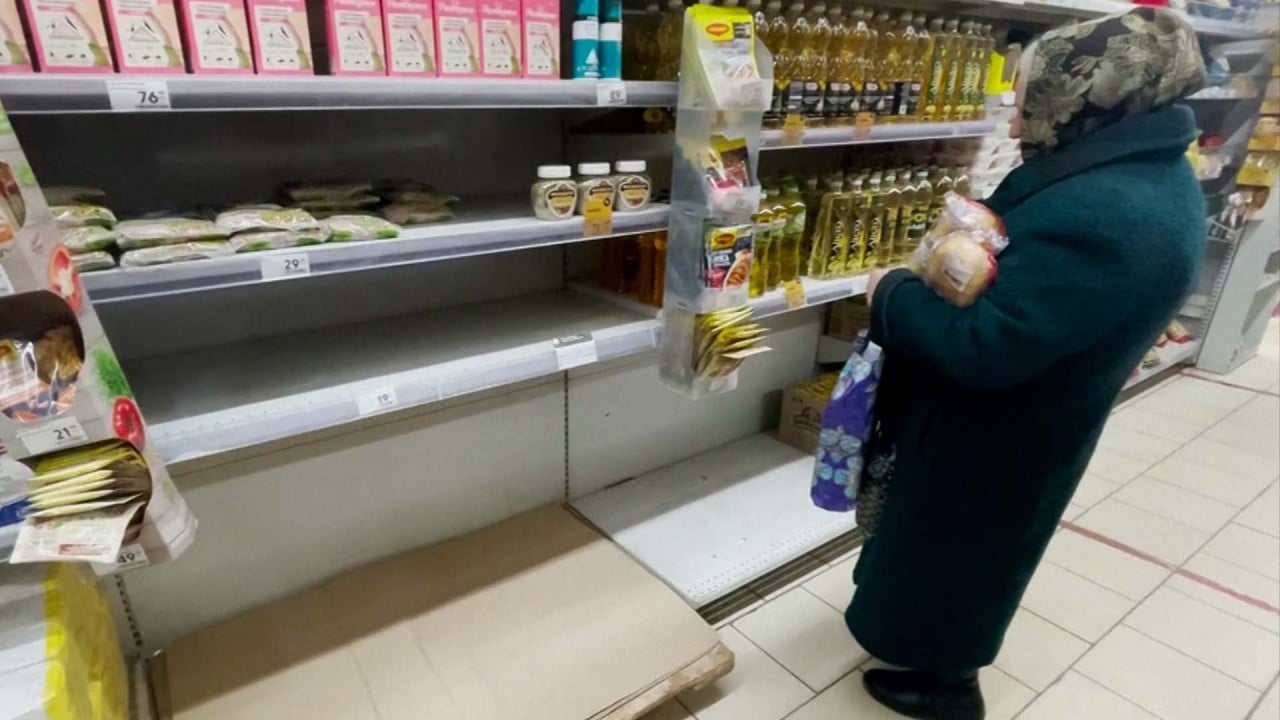
Western sanctions on Russia: developing countries won’t back measures that leave them hungry
- Few non-Western countries have answered the US’ call to economically isolate Russia, fearing the impact of disruptions to global production and trade on their own people
- Meanwhile, countries like China have already felt the effects of US sanctions and have no desire to inflict them on others
While talking with friends the other day about the latest developments in the Russia-Ukraine conflict, I was asked how many countries have imposed sanctions against Russia. Soon after I began to count, I was somewhat stirred by what emerged: outside the EU, only the UK, Switzerland, Japan, Canada, Australia, New Zealand, Singapore, South Korea and the Bahamas have followed the US in economically punishing Russia.
Not a single country in the entire African continent, Middle East or Latin America has toed the US line. Is it again a case of the West versus the rest?
Among the 193 member states of the United Nations, over 150, accounting for more than 80 per cent of the global population, decided not to follow the US’ lead. Based on Reuters’ data, the countries that have implemented sanctions against Russia, with the exception of the Bahamas, belong to the geopolitical West.
There are reports that Washington has been frantically urging developing countries to isolate Russia. US State Department spokesperson Ned Price demanded during a recent press conference that every country make clear its position on Moscow’s invasion and Washington’s response. However, despite this incessant prodding, most developing countries have opted to stay out of the conflict.
Various explanations have been offered for the refusal of the developing world to join in the West’s effort to hamper Russia, ranging from Moscow’s influence in the global South to the inability of some poor countries to punish Russia economically.
One crucial factor that has been little mentioned in Western mainstream media is the fact that these sanctions clash with the interests of the developing world. Over the decades, developing countries have learned that Western sanctions, designed to advance the interests of the enforcers, will never do them any good.
Furthermore, as the Chinese saying goes, a fire at the city gates is a calamity for the fish in the moat; the adverse effects of sanctions against one country too often spill over into other parts of the world, particularly poor countries.

As tomato growers in Turkey have discovered, banning Russian banks from Swift, the network that facilitates international payments between some 200 countries, has rendered them unable to export goods to Russia, forcing them to dump their products on the domestic market.
Washington’s push to restrict Russian trade in fertiliser has also reportedly caused the price of fertiliser to increase threefold in Thailand, while also threatening to hamper global grain production and endanger food security, an ominous prospect that has prompted Brazil, Chile, Argentina, Bolivia and Uruguay to oppose the US’ move.
Nooruddin Zaker Ahmadi, director of the Afghan import company Bashir Navid Complex, put it best when he said that, by imposing sanctions on Russia, the US is in effect, sanctioning the entire world.
For this reason, India, considered Washington’s ally in its bid to curtail the rise of China, has voiced its grave concerns over the impact of the unilateral sanctions on global economic stability.
Clearly, the sanctions imposed on Russia are forcing developing countries to pay for the cost of the geopolitical goals of the West. It is no wonder that when Washington pressured them to take sides, they understandably chose to side with their own people, refusing to serve as a pawn in the contest between major powers.
Drums of war drown out cries of hunger
As an emerging economy, China shares the feelings of its cousins in the global South, and has equally resisted the pressure to align itself with the West over the war in Ukraine. National security considerations aside, its decision has a cultural root in the 2,500-year-old Confucian teaching, “do unto others as you would have them do unto you”. Over the centuries, this belief has become ingrained in China’s national identity.

China has endured more than enough of the hardship that US sanctions can inflict, and would very much like to have seen their last. Indeed, many Chinese citizens now consider “sanction” a dirty word.
Punishing Russia economically for what it is doing in Ukraine is currently fashionable in the West. But for China, itself a sanction victim, to slap sanctions on another country, be it Russia or Ukraine, would be viewed by those at home as morally wrong and repulsive.
Zhou Xiaoming is former deputy representative of China’s Permanent Mission to the United Nations Office in Geneva


